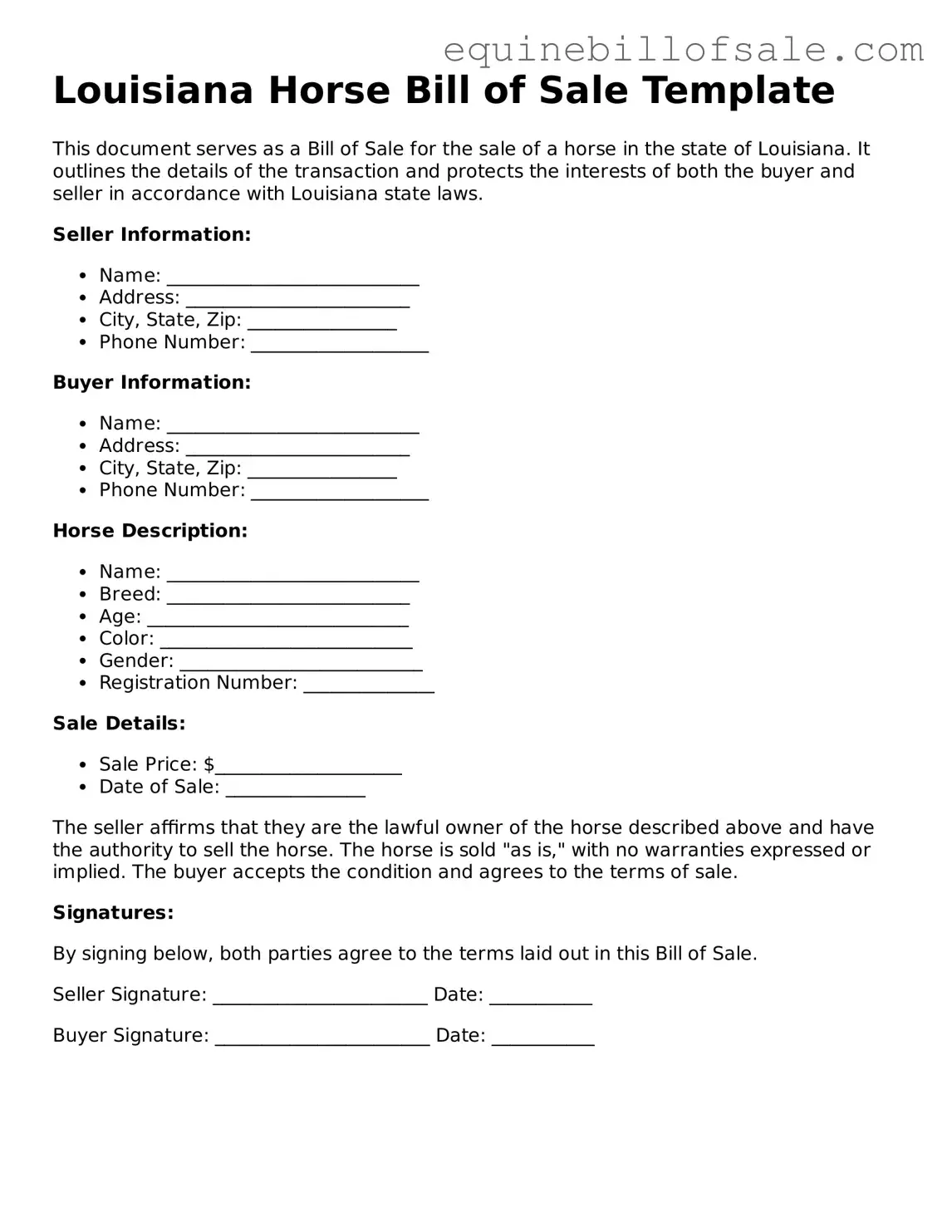What is a Louisiana Horse Bill of Sale?
A Louisiana Horse Bill of Sale is a legal document that records the transfer of ownership of a horse from one party to another. It serves as proof of the transaction and includes important details such as the horse's description, the sale price, and the names and signatures of both the buyer and seller.
Is a Horse Bill of Sale required in Louisiana?
While it is not legally required to have a Horse Bill of Sale in Louisiana, it is highly recommended. This document provides a clear record of the transaction and protects both parties in case of disputes regarding ownership or the condition of the horse.
What information should be included in the Horse Bill of Sale?
The Horse Bill of Sale should include the following information: the names and addresses of both the buyer and seller, a detailed description of the horse (including breed, age, color, and any identifying marks), the sale price, the date of the sale, and any warranties or guarantees related to the horse. Both parties should sign the document to validate the sale.
Can a Horse Bill of Sale be used as a title?
No, a Horse Bill of Sale does not serve as a title for the horse. In Louisiana, horses do not have titles like motor vehicles. However, the Bill of Sale acts as proof of ownership and can be useful for registration purposes with breed associations or for insurance claims.
What if the horse has health issues or defects?
If the horse has known health issues or defects, it is crucial to disclose this information in the Bill of Sale. The seller should be honest about any conditions that may affect the horse's value or usability. Buyers should consider including a clause in the Bill of Sale that addresses these issues to avoid potential disputes.
Can I use a generic Bill of Sale template?
Yes, a generic Bill of Sale template can be used, but it is advisable to ensure that it meets Louisiana's specific requirements. Customizing the template to include all necessary details about the horse and the transaction will provide better protection for both parties involved.
What happens if the buyer does not pay?
If the buyer fails to pay the agreed sale price, the seller may have legal recourse to recover the amount owed. This could involve small claims court or other legal actions, depending on the situation. Having a signed Bill of Sale can strengthen the seller's position in such cases.
Is it necessary to have the Bill of Sale notarized?
Notarization is not required for a Horse Bill of Sale in Louisiana. However, having the document notarized can add an extra layer of authenticity and may be beneficial if disputes arise in the future. It is a good practice to have both parties present during the signing to ensure transparency.
